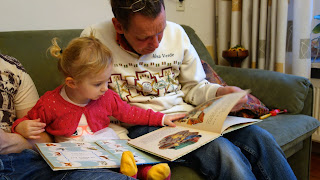Structured Unschooling | Can it happen?
They really make me jealous! You know, those awesome radical unschooling types that never make a plan. They just wake up in the morning and follow any little (or big) rabbit trail that perks their or their children’s interests! I personally know a couple of ladies like this in real life. They pursue life one day at a time, their houses always look nice and their attitude is “If God wants us there, He’ll lead us to it.” One of them loves to take college courses. She doesn’t really care if the college courses lead to employment, she just loves to learn … and her kids … they are always following such marvelous pursuits … just for the love of learning! The other is older and her kids have left home, but she still has that same attitude. UGH!
You know what happens to me if I don’t have some structure? I wind up with 17 different projects demanding to be done right now, you can’t walk through my house and I’m stressed to the max from my lack of direction! Can you relate? Then keep reading. I love the concept of unschooling. As I understand it, the basic principle of “unschooling” is to guide your children based on what God has designed them to do. I love this idea, but, I have to have structure. And all the kids I have ever taught seem to need that too.
More than anything, this is why I call myself an “almost unschooler”. In some circles, that makes me a failure. I shouldn’t even touch the term “unschooler”. It’s the old, “If you aren’t just like me, something must be terribly wrong with you.” box that all of us who are homeschooling profess to have left the traditional school system over. Really? Everyone and every family is different. We each must figure out for ourselves how God has designed us and live our lives in the way that works for us. If classical homeschooling is where your heart is at, go for it! School in a box? Go for it! Even public school. Right now, mostly because of their mothers’ health issues, almost all of my grandkids are in public school. If I could, I’d enroll all of them in Isaac Hills Home Learning Center, but distance prevents that and I agree with my kids that public school is the best choice for their families right now. But I digress …
So, how can you keep with the basic principle of unschooling and yet have structure?
- Study your kids.
What are their learning styles? What are they most interested in? Find ways to structure their learning experiences based on who they are. For instance, my daughter loved workbooks and fashion. She was my guinea pig, and I didn’t do the best job at it, but I let her do as many workbooks as I could afford, I centered math around how many beads it would take to make a bracelet type word problems and her grandmother taught her to sew. My youngest loved farming. We read from farm magazines and he and his dad figured out how much seed, chemicals, and fertilizer he would need to plant the to-scale farm in his room for math.
- Teach your kids to make goals.
Start by asking them what they want to know. Have them write down 3 things they want to know more about or do. Help them break that down into doable bites – what can they do daily, weekly and monthly to get to those goals.
- Teach them to make lists and charts.
Create lists and charts for yourself to keep track of all that you have to do and use them! I used what I called a “daily assignment sheet” with my kids. True unschoolers would never separate life into subjects, but for me, if I ever needed to communicate what my kids were doing to the world (or the parents of the other kids I taught), I needed to break down what we were doing into the standard “subjects”. So, I had the categories of Bible, Math, Science, Social Studies, Language Arts, Art, Music, Life Skills, Computer Skills and PE listed on our daily assignment sheet. Underneath each, we listed activities that we planned to do for each.
Under Language Arts we might have:
- One paragraph journal
- Learn two new vocabulary words
- Read one chapter in ____________
- Complete one online lesson on “_____ (grammar site)”
- Etc.
And then in Math, we might have:
- Learn to count by 4s
- Try to beat timed worksheet score
- Play (math game)
- Etc.
We would either check off or write in the time we spent doing each activity. And we left spaces for spontaneous activities should we want to go down a rabbit trail. Using this strategy, I was able to keep myself and my kids on-course and at the end of the day, week, month, quarter or year we had a way to look back and see just how much we had accomplished.
When your kids are just learning to read and write, you will have to do most of this yourself, but as they get older, your kids can do increasing amounts of this themselves. Eventually, they will be creating their own curriculum with very little oversight from you. In the process, they will learn time management, record keeping, and organizational skills that will serve them well throughout their lives.
It takes some self-discipline to successfully homeschool. Most folks I know start out with school-in-a-box and then when they find they can handle that, they loosen up and wind up in a more relaxed to unschooling type of homeschool structure. That’s alright if it is what works for you and you can afford it, but if you want to skip all that, but still have structure, these are the 3 basic steps you need to take.
God Bless You All!
~ Grama Sue




Comments
Post a Comment
All comments are moderated to prevent inappropriate content.